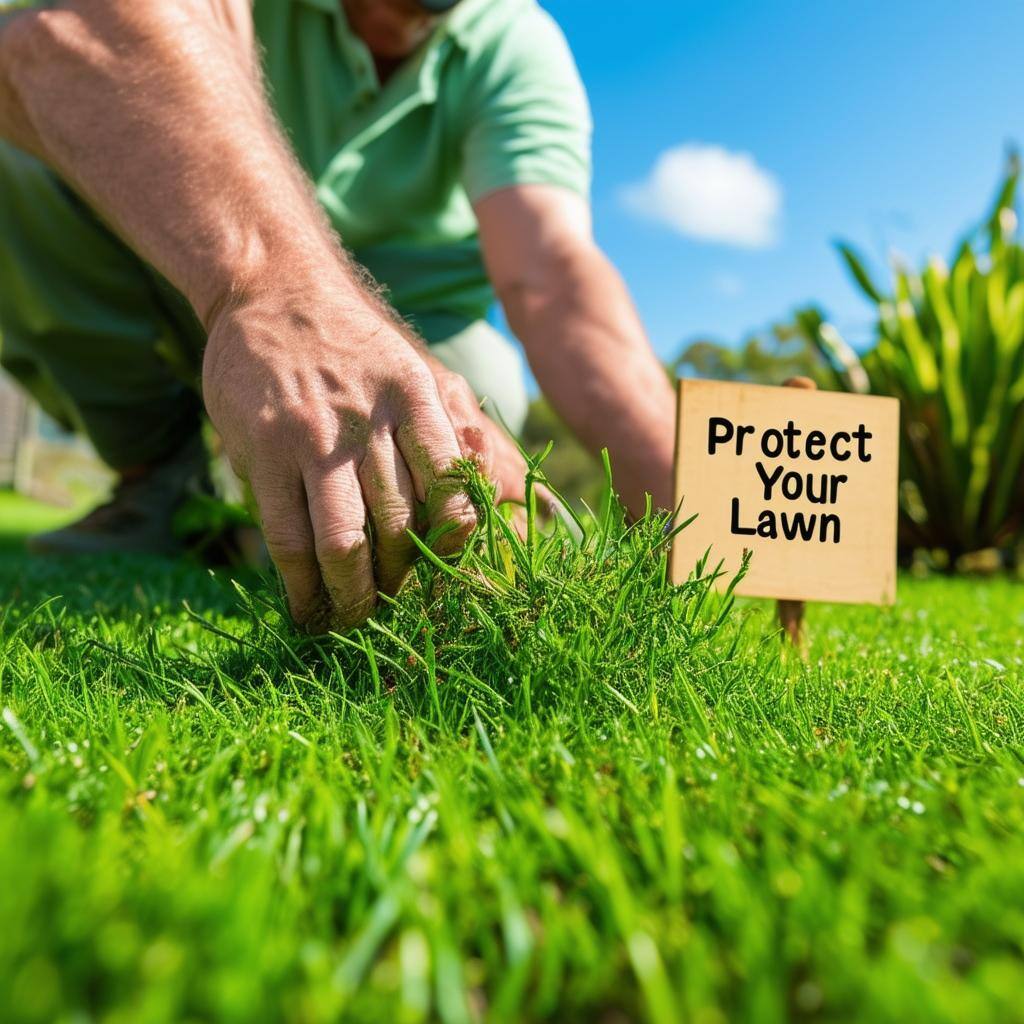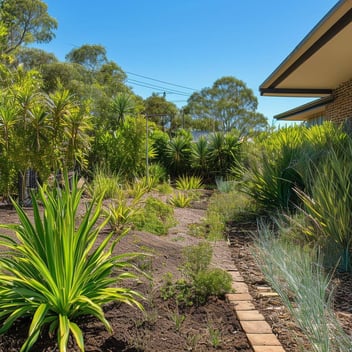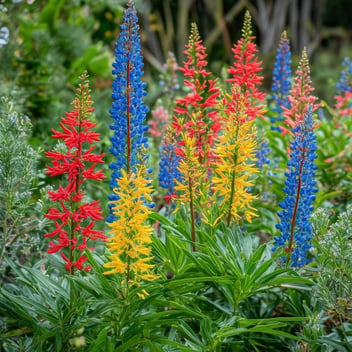Protect Your SE Queensland Lawn: Avoid Retail Weed and Feeds
Understanding the Risks of Retail Weed and Feed Products
Retail weed and feed products promise convenience: a single application to fertilize your lawn and eliminate weeds. However, their combined formula often delivers more harm than good. These products rely on broad-spectrum herbicides that indiscriminately target plant life. While they may control weeds initially, they can also weaken or kill desirable grass species, particularly those native to South East Queensland. Additionally, overapplication—a common mistake—leaves chemical residues in the soil, disrupting its delicate balance and hindering long-term lawn health.
The Unique Climate of South East Queensland
South East Queensland boasts a subtropical climate characterized by warm, humid summers and mild winters. This environment supports a variety of grass species, but it also presents unique challenges. High rainfall can lead to nutrient leaching, while prolonged dry spells stress lawns. Retail weed and feed products, formulated for generic climates, often fail to address the specific needs of lawns in this region. Local grass varieties require tailored care to thrive amidst these fluctuating conditions.
Potential Damage to Native Turf Varieties
The grasses commonly found in South East Queensland—such as soft-leaf buffalo, couch, and zoysia—are particularly vulnerable to the chemicals in many retail weed and feed products. Herbicides like Dicamba and MCPA, frequently used in these formulations, can cause leaf burn, discoloration, and root damage. Over time, these effects compromise the health of your lawn, leaving it more susceptible to pests, diseases, and invasive weeds. What starts as a quick fix can result in long-term damage.
Environmental Consequences of Chemical Runoff
One of the most significant downsides of retail weed and feed products is the risk of chemical runoff. When it rains or when lawns are overwatered, these chemicals can wash into local waterways. This runoff contributes to algal blooms, which deplete oxygen levels and disrupt aquatic ecosystems. Furthermore, herbicide residues can affect non-target plants, reducing biodiversity in the surrounding area. By choosing these products, homeowners inadvertently contribute to broader environmental degradation.
Ineffectiveness Against Persistent Weeds
Despite their promises, retail weed and feed products often fail to tackle the most stubborn weeds. Species like Mullumbimby Couch and Nut Grass, which thrive in South East Queensland, require targeted treatments. Broad-spectrum herbicides in retail products may suppress these weeds temporarily, but they rarely eradicate them completely. This ineffectiveness leads to repeated applications, compounding the environmental and financial costs.
Alternative Weed Control Methods
A more sustainable approach to weed control involves combining manual removal with targeted herbicide use. For minor infestations, hand-pulling or using a weeding tool can effectively eliminate weeds at the root. For more extensive problems, opt for herbicides specifically formulated for the weeds in question. Additionally, fostering dense, healthy grass through proper mowing and fertilization minimizes the space available for weeds to take hold, creating a natural defense against invasions.
Customized Fertilization Strategies
Fertilizing your lawn should be a precise process tailored to its specific needs. Conducting a soil test is the first step in identifying nutrient deficiencies. Based on these results, you can choose a fertilizer with the right balance of nitrogen, phosphorus, and potassium. Applying fertilizers at the correct time—such as during active growth periods—maximizes their effectiveness while minimizing waste. This targeted approach ensures that your lawn receives the nutrients it needs without the harmful side effects of retail weed and feed products.
The Importance of Soil Health
Healthy soil is the foundation of a thriving lawn. Rich in organic matter and teeming with beneficial microbes, it provides the nutrients and structure grass needs to flourish. Overuse of chemical products depletes this natural balance, leading to compacted, lifeless soil. To improve soil health, incorporate organic matter such as compost or manure, aerate regularly, and avoid overwatering. By prioritizing soil care, you create an environment where grass can outcompete weeds naturally.
Consulting Local Lawn Care Experts
When in doubt, seek advice from local lawn care professionals who understand the unique challenges of South East Queensland. These experts can recommend safe, effective alternatives to retail weed and feed products and provide personalized care plans for your lawn. Whether it’s selecting the right fertilizer, managing pests, or addressing drainage issues, their guidance can save you time, money, and frustration while ensuring the long-term health of your turf.
By avoiding retail weed and feed products and adopting tailored, sustainable lawn care practices, you can protect your South East Queensland lawn from harm. A healthy, vibrant lawn is not only a source of pride but also a testament to environmentally conscious stewardship.




